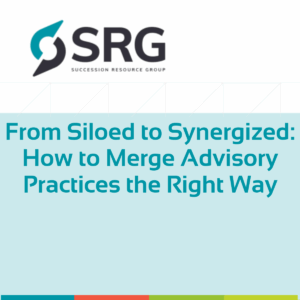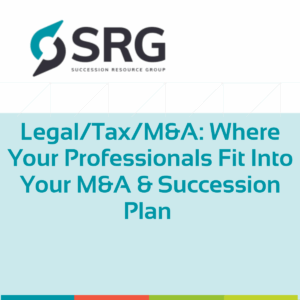
Expansion through acquisition looks great on paper, but there are a lot of moving parts to address before it can become a reality. The most obvious question is, “Where is the money going to come from?” There are a series of steps required before this can be answered.
Business acquisition loans are available from multiple sources. Each of them will have their own criteria for approval, specific to certain terms and conditions. For a business to have the widest range of options available, it’s important to cover all bases. Begin by preparing the following:
- Business Plan: An acquisition of an existing business, no matter how well established, requires a new business plan. All lenders want to see this. New ownership means changes in infrastructure, business processes, and management style.
- Due Diligence Report: Hire a consultant or M&A support team for due diligence. Lenders aren’t just interested in the structure of the deal. They want to know that the numbers are accurate and both parties practice full disclosure.
- Accurate Valuation: This should also be done by a credible third party. The valuation determines how much the buyer will need to borrow or finance. Acquisition lenders look at valuation and measure it against real market value.
- Growth Strategy: The most common reason to buy a business is to expand existing operations. What exactly is the strategy for doing that? Melding two companies together isn’t easy. Show how the new entity can grow with minimal disruption.
- Projected Financial Statements: Prepare a summary-level income statement and balance sheet based on projected numbers after the acquisition. Include a cash flow statement. Lenders want those numbers before approving any funding.
There may be other requirements, depending on the institution. Start with the documentation outlined here to ensure you have a solid foundation to get started. Once all paperwork is compiled and organized, the next step is to look at options for a business acquisition loan.
Calculating Return on Investment for a Business Acquisition
How much money is needed for this acquisition and what is the expected return on that investment? Lenders will ask this question. Borrowers should know the answer. This is important math that should be done prior to visiting a bank or online institution.
In the case of a prospective business purchase, ROI should be a range and a percentage, not a set dollar amount. The existing business has financial statements to show their current profitability, but that will change when new ownership takes over.
Larger corporations can survive with an ROI under 10%. Small business owners need that number to be between 15% and 30%. That’s after all overhead, marketing expenses, owner salaries, and payments for any loan you’re about to take out to buy a business.
Overlooking upcoming expenses when calculating a projected ROI can put a new business owner in the red quickly. It’s best to hire a consultant or M&A support team to break down costs and liabilities. Use someone with experience in your industry.
Expect disruption and setbacks. Build an emergency fund into the numbers. It’s better to have it and not need it than need it and not have it. 2020 taught us some valuable lessons. No one could have predicted the damage inflicted on small business owners during the pandemic.
Business Acquisition Funding from a Local Bank or Credit Union
Existing business owners will have more options available for business acquisition loans. First-time buyers with limited business experience should expect to need a better personal credit score and may be subject to higher interest rates as a first-time borrower.
The most obvious place to start looking for business acquisition loans is at the buyer’s local bank or credit union. For those going this route, ask about the following:
- Startup Loans: This option is for those who’ve never owned a business before and need financial assistance to get started. Some institutions may ask to see cash down payment before approving a business acquisition loan in this category.
- SBA Loans: The Small Business Administration has multiple programs in place to assist small business owners, including business acquisition loans for an existing business looking to expand. Approval needs to come from the SBA and can be done online.
- Traditional Bank Loan: Small business owners with a good personal credit score and track record of success can simply apply for traditional bank loans. Interest rates are low right now and business acquisition funding is a priority for local banks.
Starting or buying a business is a dream that can become a reality with the right financial institution to backbone the sale. Staying with a local institution may be preferable for obtaining acquisition financing, but it is not the only option. Other choices are available online.
Finding and Evaluating Online Lenders
A small business owner can go online to apply for an SBA loan. Their business needs to have average annual revenue of under $7.5 million, fewer than 500 employees, and they cannot be on parole. Once approved, the money can be used for an acquisition.
Searching online for business acquisition financing opens up other options besides SBA loans for a business owner. Some lenders offer business expansion loans, which can be used for an acquisition. Others offer equipment financing or crowdfunding.
SRG offers a free tool for buyers to research loans and connect with potential lenders: LendingWell
It’s important to understand that some of these loan options are not necessarily the right choice to buy a business, but they do provide an opportunity to be creative with cash flow, potentially freeing up additional liquid capital to make a transition simpler.
- Business Expansion Loans: A business expansion loan can easily be confused with a business acquisition loan. It is not the same thing. The loan amounts, rates, and terms are not conducive to creating economies of scale.
- Equipment Financing: This might be a good option after you buy a business. It could even be included in a business plan, but it’s not recommended if you’re also taking out a business acquisition loan. That’s too much debt to start out with.
- Factoring: Using your invoices to create extra cash flow is another post-acquisition option. Many online lenders push factoring to create liquidity, but they take a percentage off the top for doing it. Not a good move for a new business venture.
- High-Interest Term Loans: This is one of the financing options that business owners with bad credit turn to. Unfortunately, if you’re in that position, it may not be the right time to be buying a business. Review your financial statements again before making this move.
Most online loan sites are actually lender marketplaces, so expect to see diverse offerings like these. Filling out one loan application sets up a “shopping” process to multiple lenders, some of which do not handle business acquisitions.
Alternative Lenders and Crowdfunding

Most online loans come from traditional banks. They use online portals to simplify the application process and gather all the information they need to evaluate credit history. Non-banking entities that offer loans are classified as “alternative.”
Alternative loans are usually offered by private companies and come with high-interest rates. Private industry is not FDIC insured, so it makes sense. These lenders take on more risk because they don’t have federal backing. The borrower pays extra for that.
One of the more popular categories of alternative lending is called “crowdfunding.” Platforms like Kickstarter and Indiegogo have been instrumental in helping thousands of startup businesses get off the ground. First-timers may want to look at those.
With some lenders, a business looking to do an acquisition may be able to finance the loan using a mix of equity and debt. Venture capital firms are alternative lenders, as are private equity funds. Either is a good option for larger acquisitions.
Owner Financing
With good business credit and a profit and loss statement that’s in the black, some prospective buyers are able to work out owner financing when buying a business. This is a personal agreement where the buyer puts some money down and then makes installment payments.
Owner financing has its pros and cons. For certain types of business, it’s an affordable way to get into a new venture, but the mix of personal and business in an arrangement like this can cause instability if the buyer struggles later on down the line.
The Role of Personal and Business Tax Returns
Accurate tax returns are important whether you’re going for an SBA business loan or opting for one of the other choices we’ve outlined here. Before a borrower can review the interest rate options and type of business loan, the lender will want to see tax returns.
Make sure that any tax issues are resolved before taking on more debt. The IRS interest rate for back taxes owed, combined with penalties, can cause severe financial distress. Executives with any kind of significant time in business understand and avoid this situation.
Along with tax information, have any previous business bank statements arranged in chronological order before applying for acquisition loans. Those numbers are available online, but some lenders prefer to have paper reports to evaluate.
As for taxes after a business acquisition loan, your interest payments may or may not be deductible, depending on the tax laws for that particular year. Consult with a CPA or research-related articles on tax liability and protection.




